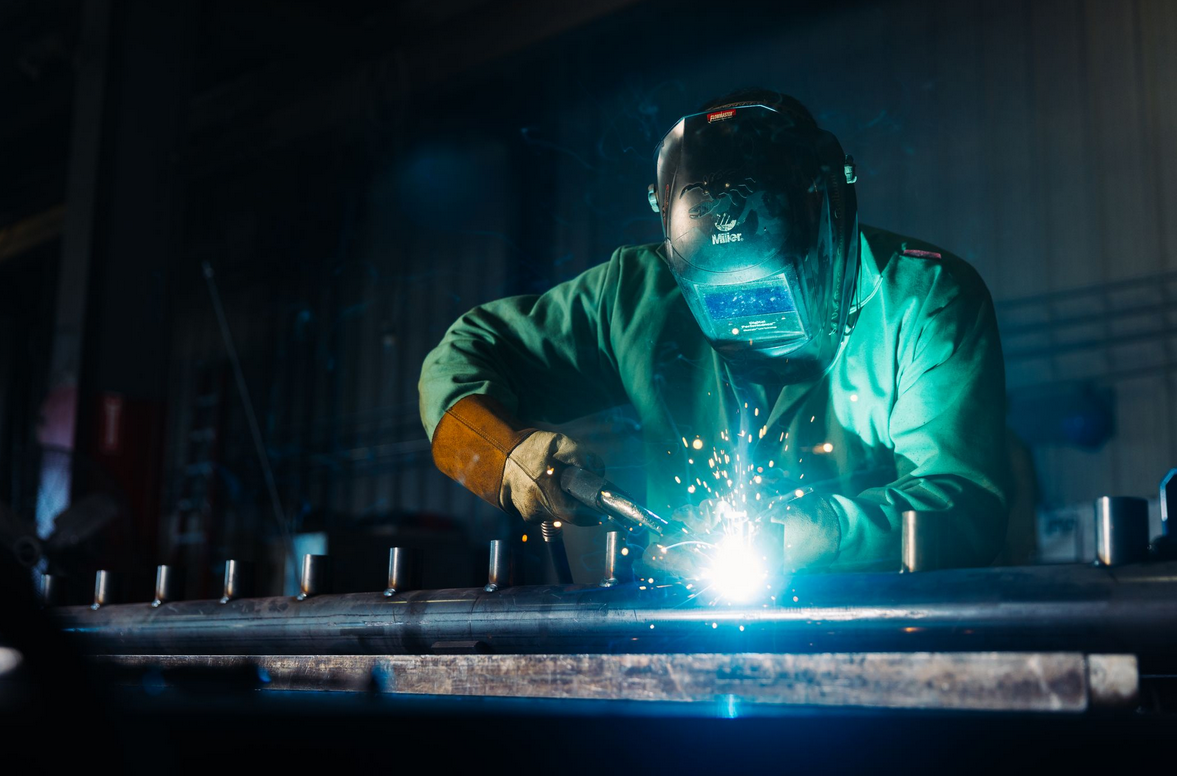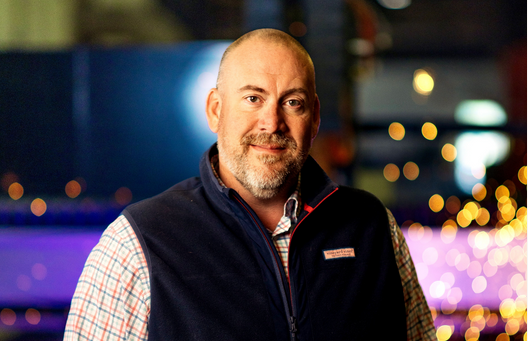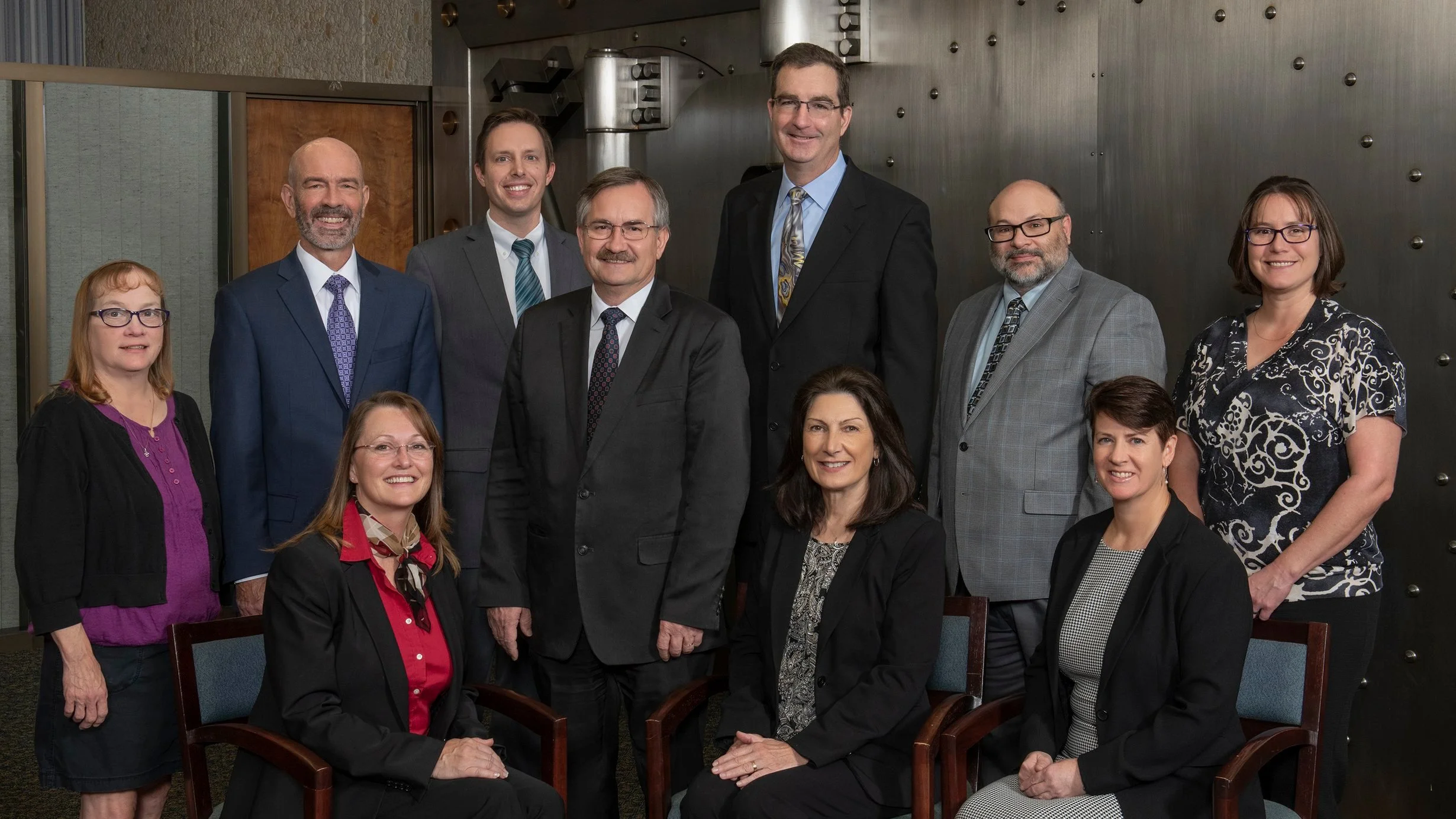BUILT TO LAST | ERNEST-SPENCER
Photos by JOHN BURNS
Neal Spencer was 30 years old and the operations manager of Ernest-Spencer, when his father, Brad, owner and president of the local precision manufacturer, died suddenly in 2007 at the age of 57.
Overnight, Neal was thrust into an ownership and leadership position.
The timeline had always been for Neal to take over for his father, just not at such a young age.
“He passed away one day, and the next day I was at work,” Spencer said. “And at the time, I felt I needed to be here to prove to all of the Ernest-Spencer employees and customers that I was capable.
“Growing up as the owner’s son, you’re in the spotlight, but there’s always a question mark. Is he capable or not? Can he do what dad did or grandad did? I worked hard for the first three years or so to earn their respect. Fortunately, from age 14 all the way to that point, I had a lot of years of experience that most people wouldn’t have had at my age.”
Fast forward 15 years later, Neal Spencer, as the fourth-generation president, CEO and owner, has Ernest-Spencer on good footing. The company officially celebrated its 100th anniversary in business on Oct. 15 with a large gathering of employees, past and present, and their families.
“For us, it’s as strong as it’s ever been,” Spencer said. “We have a bigger backlog than we’ve ever had. Our demand for new services and new products going into next year is more than we’ve ever seen.
“So, at our level, we’re not seeing a recession. That doesn’t mean it won’t come, or we won’t see some lag effect. But right now, we’ve got as much new business opportunities as we want to bite off. The biggest hurdle is the right amount of people and the right people to do the work. But we’re strong. This year will be one of our best years on record.”
In the 15 years Spencer has been in charge, the 225-employee company has more than doubled its business. Still, Spencer knows the magnitude of overseeing a company that began just four years after World War I ended.
“There’s additional pressures just because it’s something that’s been around that long,” he said. “A lot of the traditional multigenerational companies don’t survive, and you don’t want to be the guy that causes the mistakes. You try to forge a new direction, while honoring what’s happened in the past.”
Ed Ernest, Neal’s great-grandfather, started Ernest Engineering in 1922. The company started as one that designed and built grain elevators and feed mills for agricultural facilities throughout the Midwest. “Bud” Spencer, Neal’s grandfather, married Ernest’s daughter Becky in 1946, and Bud and Ed joined together to form Ernest-Spencer. Bud was president from 1955-1988, and Neal’s dad, Brad, succeeded him. Neal said his grandfather, Bud, was still coming into the office when he was 90 and died in January 2020 at the age of 96.
Neal Spencer | President/CEO and Owner of Ernest-Spencer | Photo by John Burns
“Growing up in the Spencer family, I wanted to go to work at a young age and watch (my dad and grandfather) do what they do and admire how great they were at it. They worked well together,” Neal Spencer said. “I saw their love for the people of the company, and their desire to continue to evolve and grow.
“There was never complacency by either one of them. I think that’s a big part of what I gained. I’m never content in what we are. We’re always evolving to be something different. It doesn’t always mean it’s bigger. We’re just trying to keep up with the times and offerings for our customers and our employees.”
Over the years, the company established an in-house metalworking department that eventually began offering high-quality fabrication services to the outside world. The company also added a standalone powder coating and finishing facility.
The company’s customer base is mainly in the Midwest, from Colorado to Missouri and the Dakotas to Texas, Spencer said, adding they ship worldwide for their customers.
From 1922 to 1993, Ernest-Spencer called Topeka home. Then, making a business decision, the company moved its headquarters to Meriden, where they continue to be today at 3323 NE 82nd St.
The reason for the move?
“It was a bit of contrast to what we see now,” Spencer said. “Back then, we were in Topeka, and were looking to grow. There just wasn’t a tremendous amount of incentives for existing businesses to expand. Jefferson County and the city of Meriden were open arms and really wanted us to be here and establish our roots. We’re very gracious in everything they provided us to do that. So, we made the change.”
Ernest-Spencer acquired competitor Topeka Metal Specialties in 2016, and thus, the company again had a footprint in the capital city.
“We found it refreshing,” Spencer said of coming back to the capital city. “The folks in leadership in Topeka and the Greater Topeka Partnership have been great to work with, providing incentives and support. There’s a pro-business, pro-growth vibe in Topeka that’s been contagious.”
0Spencer said being at 5600 SW Topeka Blvd. in Topeka has allowed the company to continue to expand the overall picture with the employment base and recruit folks from south of Topeka that they weren’t necessarily getting in Meriden.
Any company that survives for 100 years is going to see its fair share of challenges. Many of those for Ernest-Spencer were world events such as the Great Depression and World War II. More recently it was the Great Recession and the COVID-19 pandemic.
“The recession in 2008-09 was a challenge for us. For me, it was right after I took over the company. I’m 31-32, going, ‘man, this isn’t what I really wanted to do,’ but you learn, and you’re stronger because of it," said Spencer. "Then came the pandemic. I think each challenged the business and challenged our people. But we came out stronger. We’ve seen record growth and we continue to take advantage of that as best as we can.”
Can Ernest-Spencer make it another century?
Spencer, 45, said he has kids that could potentially be a fifth generation. The focus for him is the next 10 years, where he’ll work to continue to grow the company in customer offerings, technology and employee recruiting.
“It’s got the strength and stability to be here in 100 years,” Spencer said. “Whether it’s me or somebody else, this company will have a long, long future.”






